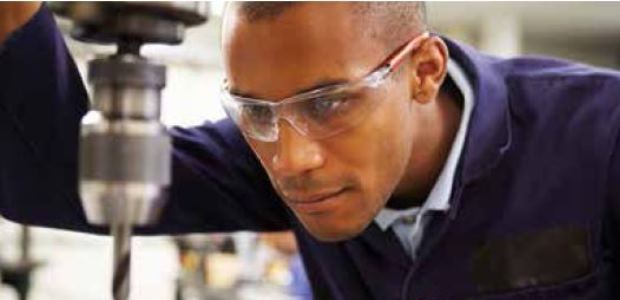Community, Leadership, Experimentation, Diversity, & Education
Pittsburgh Arts, Regional Theatre, New Work, Producing, Copyright, Labor Unions,
New Products, Coping Skills, J-O-Bs...
Theatre industry news, University & School of Drama Announcements, plus occasional course support for
Carnegie Mellon School of Drama Faculty, Staff, Students, and Alumni.
CMU School of Drama
Monday, October 05, 2015
Keeping an Eye on Your Vision Protection Program
Occupational Health & Safety: Almost one-third of all private sector injuries to the head that involved days away from work in 2012 were eye injuries—BLS data show a total of 20,300 eye injuries among the 65,320 head injuries that year, with the manufacturing sector accounting for 4,880 of the eye injuries and construction accounting for 3,080 of them, the National Safety Council's Injury Facts, 2015 edition reports.
Subscribe to:
Post Comments (Atom)

4 comments:
I am a firm believer in monkey see, monkey do. Maybe it's my background in working with children, but you can't hold people to a standard and not follow it yourself. It's hypocritical and your staff isn't going to respond to it, even though it's something as critical as safety. One of the most important parts of this article is the point that talks about supplying appropriate eyewear for the project. One size doesn't fit all, and from a managerial perspective, it's important to recognize that. The best kind of safety equipment is the kind that doesn't impeded on you doing your work, which is one excuse people use when they don't use eyewear. In addition, I didn't realize how big a deal fog was in terms of eye protection, probably from my non-exposure to it. I also never thought about the "wear what they wear" point. I'm not sure that I agree with it, but I can see where the author of the article is coming from. It's a little gesture that could go a long way, but from a safety perspective, it's kind of useless.
On a serious note, the fact that employer change people’s health plans without notice is disgusting and it’s just another reason to hate the medical profession. I’ll never have a good plan no matter what, so why bother making sure my healthcare doesn’t get taken away? I’m going blind for crying out loud! I was born with 20/20 vision (my goodness, the only working thing in my damn body), and then I found out I had a lazy eye one day. It’s genetic on my mother’s side of the family, which is really funny to look at in photos/portraits. If you go down the line of children, everyone has a monocle on the same eye until glasses became more fashionable in the 1900’s. Because of this lazy eye and increasingly lowering vision in my left eye, I cannot be a fighter pilot for the military, which was my father’s dream for me. Too bad I can’t continue the military tradition, but at least I can see still!
With todays technology, the only reason that we have everyday eye injuries isn’t because of lack of sufficient personal protective equipment technology, its because lack of compliance. The majority of people don’t actively refuse to wear eye protection, and when they don’t its because of convenience, comfort, lack of correctly sized eyewear, or just for fashion. For me now, eyewear is non-negotiable. In high school, all of my friends and I would just go an use whatever tool without any PPE, because what was the worst that could happen? Get some sawdust in your eye? Yes, exactly that, you will get a sharp bit of sawdust or metal in your eye. And one in a million of the million bits of sawdust you generate in a day will lodge itself in your eyelid and cause continuing irritation, best case scenario. As a shop manager, I would go out of my way to provide PPE that my employees actually wanted to wear, or at least a pair of safety glasses they can not find a reason not to wear.
Eye protection is extremely important to me, and I think this article brings up something important - just wearing goggles/glasses does not mean that one's safe. Discomfort such as fogging scratches and glare can even further compromise one's safety. However, eye safety is never one person's sole responsibility. I'm surprised to read that infection hazards may be present in emergency eyewash stations that are improperly maintained. This is something beyond the worker's control, and so while it is important for individuals to be responsible for their own eye safety, it is even more important that the employers provide the workers with what they need to protect their eyes.
Post a Comment